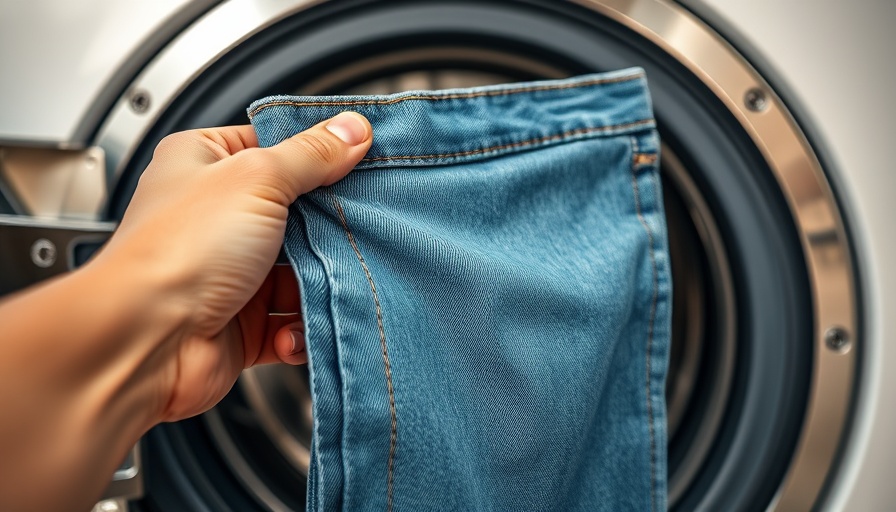
Understanding the Impact of Hot Water on Your Fabrics
When it comes to doing laundry, the temperature of the water in which you wash your clothes can make or break the lifespan of your fabrics. Hot water might be tempting for its cleansing power; however, certain textiles deserve a more delicate approach. According to experts, washing clothes in hot water can lead to fading, shrinkage, and overall wear and tear.
For instance, fabrics like wool and silk thrive in cold or warm water rather than hot since the harsh temperatures disrupt their natural fibers, leading to misshaped garments and destroyed elasticity. Using cold water can preserve the integrity and color of your precious items while maintaining their fit.
The Surprising Impact on Bed Linens
Many believe that washing bed linens in hot water is best for killing germs, and while it's true that some bacteria cannot survive high temperatures, not all bed linens are created equal. Most experts recommend washing sheets in warm water to ensure cleanliness without the risk of shrinkage or damage to the fibers. Cotton sheets, for instance, look and feel better when cared for properly in warm water, plus they’re less likely to warp around the edges.
Delicate Items That Deserve More Respect
Ever tried to wash a delicate lace lingerie piece in hot water? If you haven’t, you might want to keep it that way. Washing delicate and intricate items in hot water can ruin them beyond repair. Instead, opt for a gentle cold wash combined with a mild detergent; this way your delicate items remain intact and ready for future cozy nights.
How to Identify Fabrics Before They Hit the Water
Knowing which fabrics can withstand hot water is crucial. Familiarize yourself with your clothing labels—those little tags provide invaluable information on care. Materials like polyester and acrylic are often more resilient to heat than cotton or wool. Understanding the fabric type can help you avoid laundry disasters that can arise from mixing hot water with delicate textiles.
The Benefits of Cold Water Washing
Switching to cold water washing can save you money, as cold water cycles consume less energy than hot ones. Your clothes benefit by being cleaner and brighter as well. Not only does this method prevent fading, but it also reduces the wear and tear caused by harsh chemicals and extreme temperatures. The environmental impact decreases significantly with fewer energy resources spent heating water.
When Heat is Useful—But Not in Water
Sometimes, you want to harness the power of heat without directly exposing your fabrics to it. Ironing or steaming can be beneficial for removing wrinkles but can never replace the penetrating quality of heat in extraction or fabrication processes. In cases where bacteria are a concern, look out for hot dryer cycles rather than washing in hot water.
Expert Tips for Optimal Laundry Practices
Staying informed means engaging with practical tips to keep your laundry in check. Here are a few expert recommendations:
- Choose cold water for bright colors and delicates.
- Use warm water for everyday items like towels and sheets.
- Reserve hot water for whites and heavily soiled items only.
By following these guidelines, not only will you extend the life of your fabrics, but you'll also save yourself time and effort trying to fix what should have been treated with care from the start.
 Add Row
Add Row  Add
Add 



Write A Comment